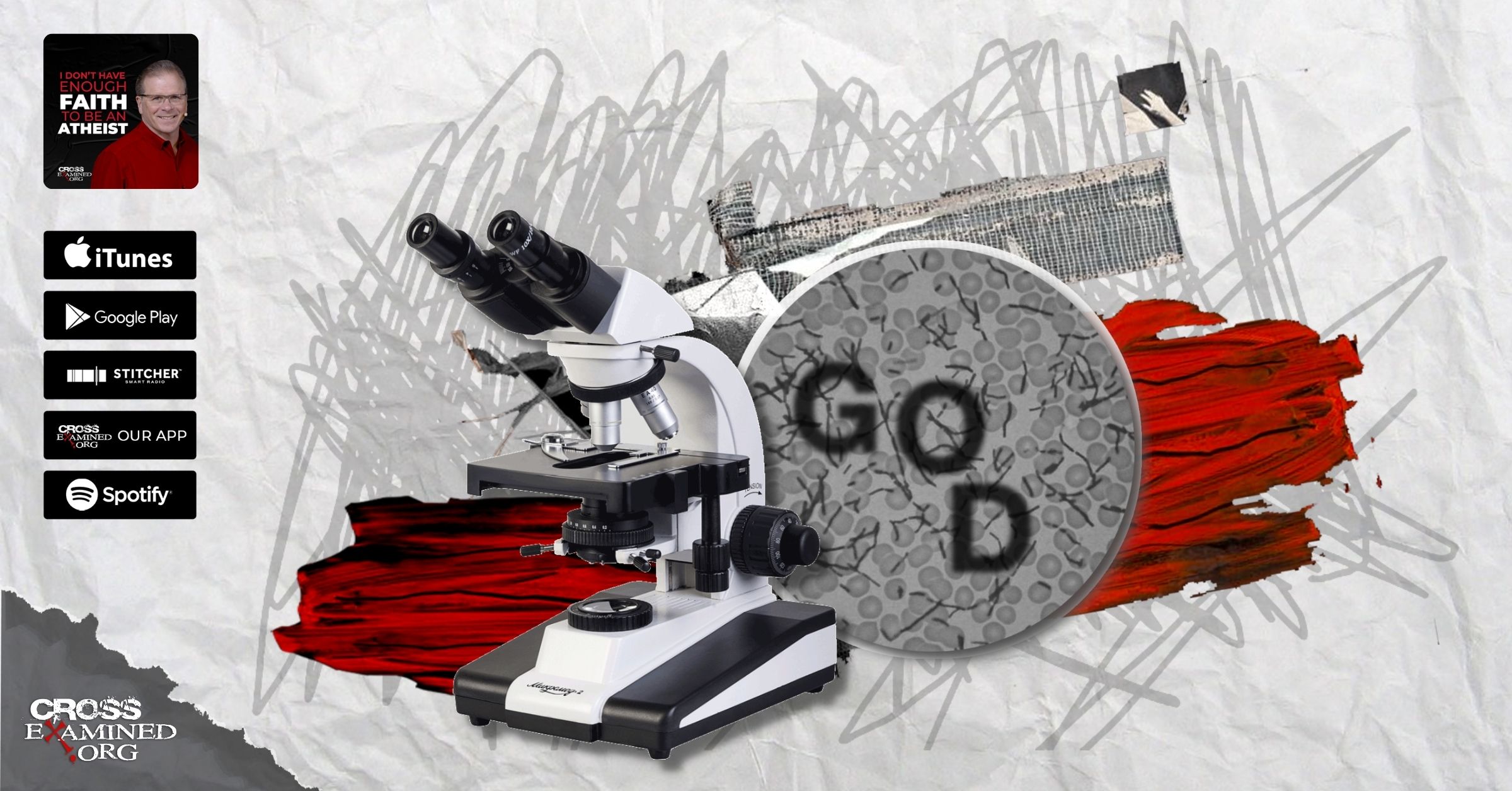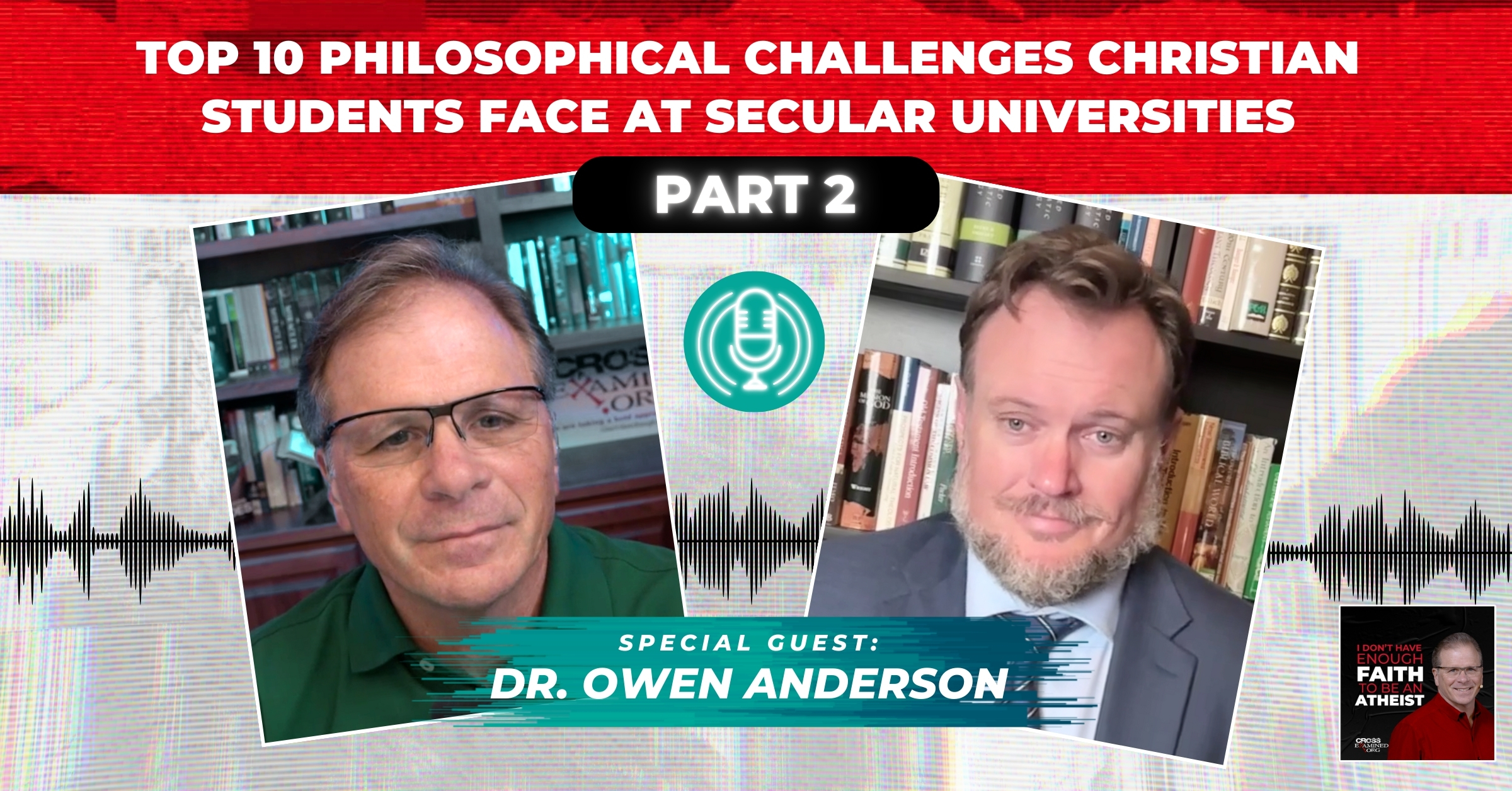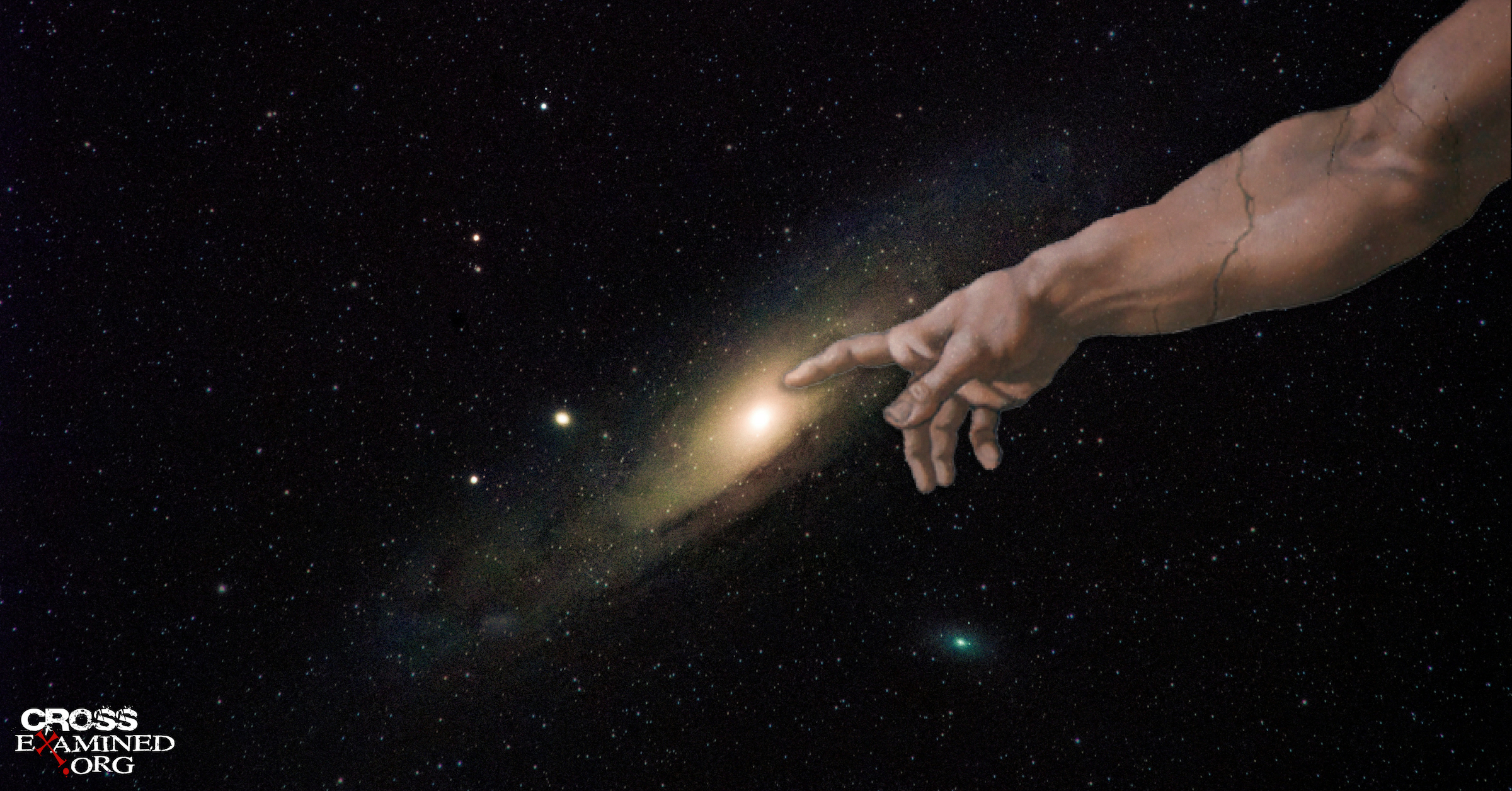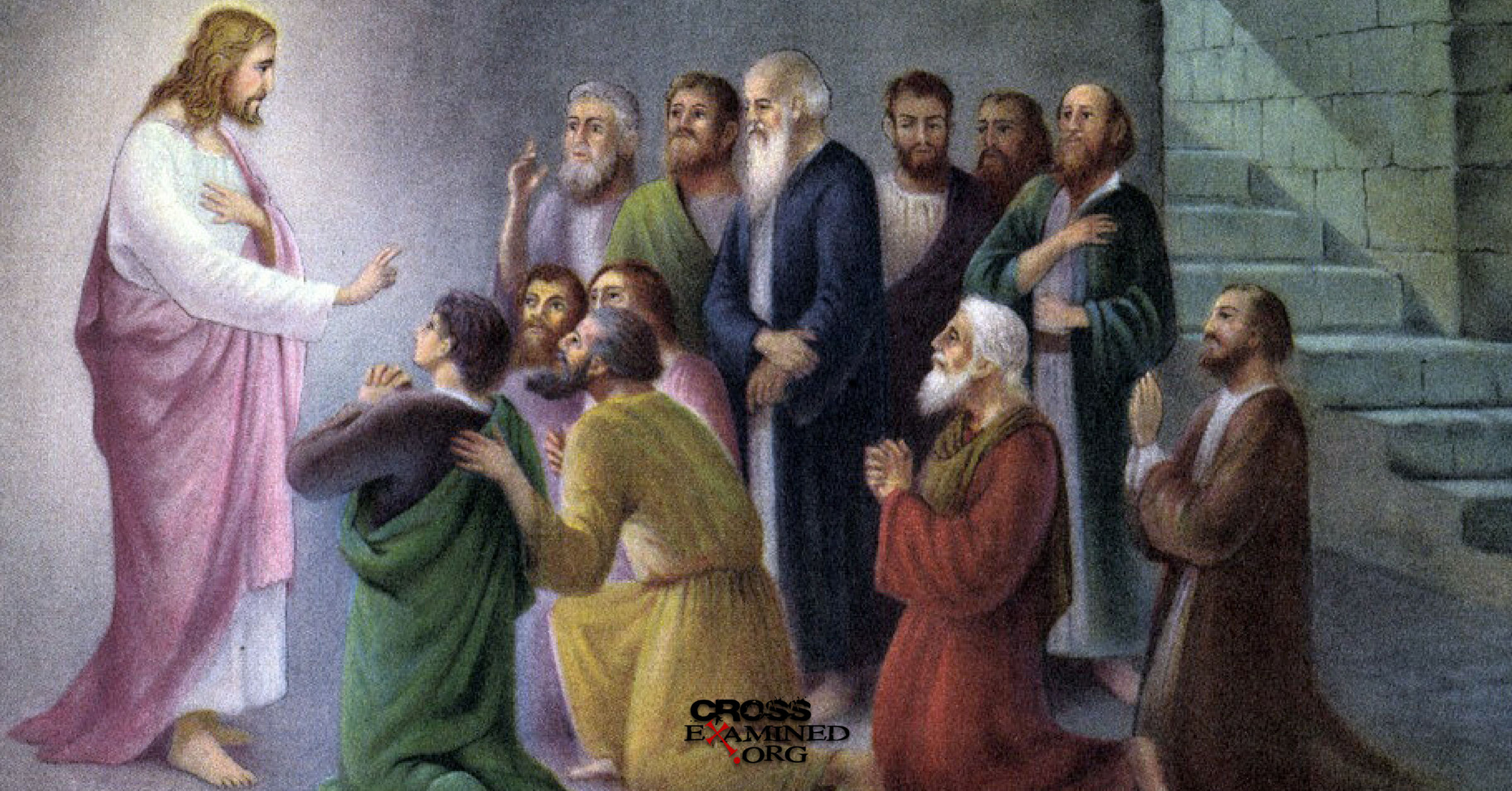Theistic Foundation of Science, part 2
By Ken Mann
Think Week: The Foundations of Science Found in Christian Theism, 2
Five Explanations
In this post, we will begin to consider how the presuppositions of science described in the previous post can be explained or grounded. Recall that these presuppositions cannot be discovered or defended via any kind of scientific process. Rather they form a foundation that makes science possible.
In order to explore how to explain or ground the presuppositions of science, we necessarily turn to the question of worldviews. For the sake of space, I am going to contrast Christian theism with naturalism. By naturalism, I mean the view that everything that exists is physical. Immaterial things such as souls, consciousness or numbers do not exist. This would also exclude the existence of immaterial minds.
Let’s consider three of the presuppositions.
A Real World
In contrast to other religious systems (e.g., Hinduism or pantheism), Christianity teaches that the creation is real. Human beings were created as both physical and spiritual beings that must interact with the reality of their physical existence.
For the naturalist, this is not a strange idea, in fact, one definition of naturalism is simply that physical reality is the only reality.
An Orderly World
The Christian perspective as to why creation is orderly is based on three things. First, there is a single, transcendent creator. Creation is not filled with multiple, immanent, and competing gods.
Rather, all of reality is the unified and coherent product of a single mind. Second, the order of nature rests on the character of God. Since God is revealed to be reliable and unchanging, it is reasonable to expect creation to be the same. Third, God is the divine legislator. If God were the source and foundation of morality, why wouldn’t He also be the source for the “laws of nature.”
It is important to note that the very idea of “laws of nature” or even that creation should be orderly and predictable was unknown until the Middle Ages. Scholastic thinkers wrestling with how to integrate Aristotle’s views of creation with the Bible concluded that laws govern nature.
Further, they believed while God was the author of such laws, He was not constrained by them.
Nancy Pearcey makes the following observation: “The order of the reasoning here is important.
The early scientists did not argue that the world was lawfully ordered, and therefore there must be a rational God. Instead, they argued that there was a rational God, and therefore the world must be lawfully ordered. They had greater confidence in the existence and character of God than in the lawfulness of nature.”[1]
A Continuing World
The following passage by David Hume is a powerful description of the problem of induction, the process by which we infer that the future will be like the past.
For all inferences from experience suppose, as their foundation, that the future will resemble the past, and that similar powers will be conjoined with similar sensible qualities. If there be any suspicion that the course of nature may change, and that the past may be no rule for the future, all experience becomes useless and can give rise to no inference or conclusion. It is impossible, therefore, that any arguments from experience can prove this resemblance of the past to the future; since all these arguments are founded on the supposition of that resemblance.[2]
From the naturalist perspective, there is no answer to this issue other than the mere hope that the world will continue and that the “course of nature” will not change. However, the Christian theist turns to the doctrine that God sustains creation. Everything continues because God chooses for it to continue.
In the next post, we will consider the last two presuppositions, An Understandable World, and An Expressible World.
Biography
Carlson, Richard F., Wayne F. Frair, Gary D. Patterson, Jean Pond, Stephen C. Meyer, and
Howard J. Van Till. Science & Christianity: Four Views. Downers Grove, IL: IVP Academic, 2000.
Collins, C. John. Science and Faith: Friends or Foes?. Wheaton, IL: Crossway Books, 2003.
DeWeese, Garrett J. Doing Philosophy as a Christian. Downers Grove, IL: IVP Academic, 2011.
Deweese, Garrett J. Philosophy Made Slightly Less Difficult: A Beginner’s Guide to Life’s Big
Questions. Downers Grove, IL: Intervarsity Press, 2005.
Gould, Stephen Jay. Rocks of Ages: Science and Religion in the Fullness of Life. New York, NY: Ballantine Books, 1999.
Hume, David. “The Project Gutenberg eBook of An Enquiry Concerning Human Understanding.” http://www.gutenberg.org/files/9662/9662-h/9662-h.htm (accessed April 14, 2015).
Moreland, J. P. Christianity and the Nature of Science: A Philosophical Investigation. 2nd ed.
Grand Rapids, MI: Baker Book House, 1999.
Moreland, J. P., and William Lane Craig. Philosophical Foundations for a Christian Worldview. IVP Academic, 2003.
Numbers, Ronald L. Galileo Goes to Jail and Other Myths about Science and Religion. 1st ed.
Cambridge, MA: Harvard University Press, 2009.
Pearcey, Nancy. The Soul of Science: Christian Faith and Natural Philosophy. Wheaton, IL:
Crossway Books, 1994.
Stark, Rodney. For the Glory of God: How Monotheism Led to Reformations, Science, Witch-
Hunts, and the End of Slavery. Princeton: Princeton University Press, 2004.
Notes
[1] Nancy Pearcey, The Soul of Science: Christian Faith and Natural Philosophy (Wheaton, IL:
Crossway Books, 1994), Kindle Locations 221–223.
[2] David Hume, “The Project Gutenberg eBook of An Enquiry Concerning Human Understanding,” http://www.gutenberg.org/files/9662/9662-h/9662-h.htm, (accessed April 14, 2015).












Leave a Reply
Want to join the discussion?Feel free to contribute!